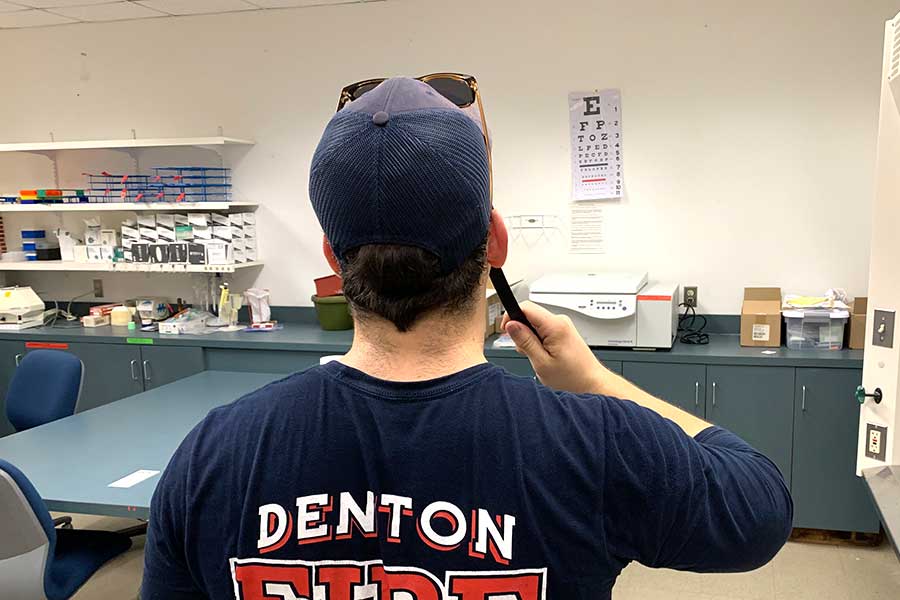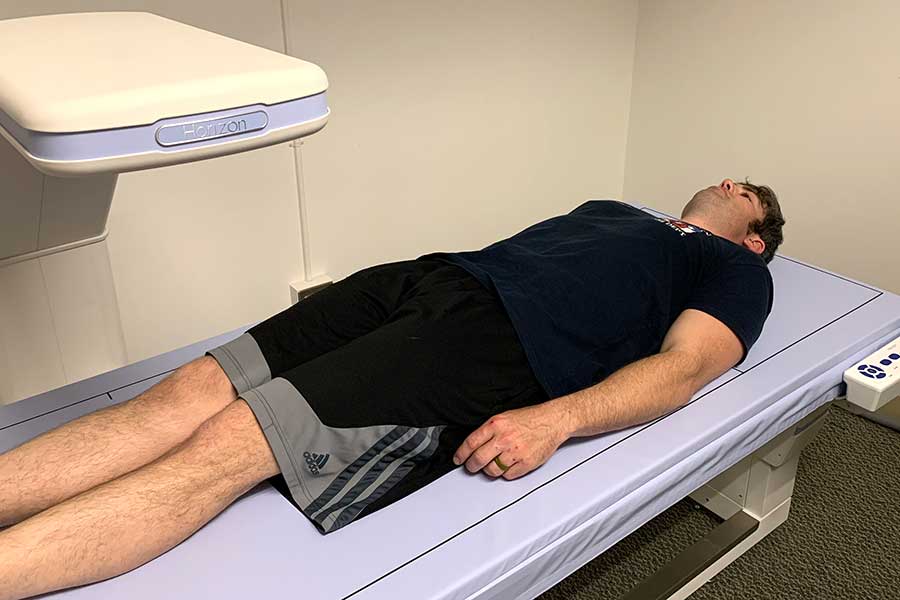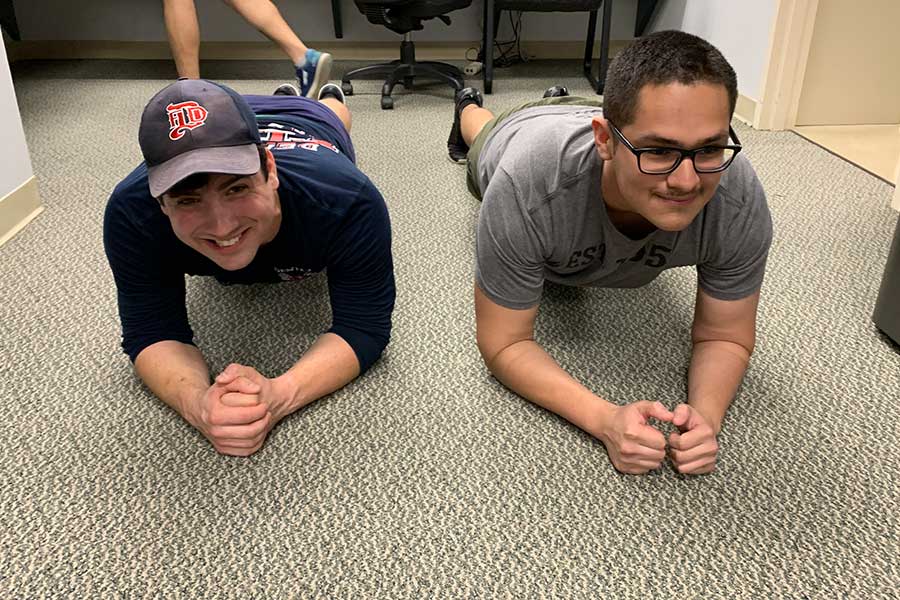Partnership aims to improve firefighters’ health, wellbeing

For two months each spring, it isn’t uncommon for a Denton red fire truck to casually cruise along Old Main Circle on the Texas Woman’s Denton campus. Or to see firefighters, dressed in blue uniforms, striding in and out of Woodcock Hall during the period.
The Department of Nutrition and Food Sciences partners with the Denton Fire Department in conducting wellness and physical exams for its firefighters. For the last five years, Texas Woman’s faculty and students have offered these exams, which are required annually for firefighters by the National Fire Protection Association (NFPA).
In 2023, faculty and students administered tests to 144 firefighters, around 70% of the department. For Denton Fire Safety & Wellness Battalion Chief David Boots and Shane Broughton, the chair of the nutrition and food sciences department, the partnership is a good opportunity for everyone involved.
“TWU has trained personnel, doctors who are experts in their fields, campus is a half mile from the central fire station and we love to partner with local universities,” Boots said.
Broughton sees it as another way for Texas Woman’s to build community outreach and for students to have hands-on experience in helping people make healthy choices and collect data for future research projects.
“We are not only trying to help the firefighters,” Broughton said. “We are also trying to help our students. We want them to make career decisions that are going to benefit them for the future.”

So, March and April are busy months for Broughton’s graduate and PhD students. Students, under physician supervision, perform many of the tests on the firefighters.
The wellness testing includes a bone density and body composition scan, also called a DEXA scan; a physical examination by a nurse practitioner and vision and hearing tests. The exercise component includes push-ups, planks, a sit and reach, hand grip, and running on a treadmill.
Boots has seen upward trends in the results. Firefighters are scored from poor to superior. More than 60% of participants scored superior in 2022 in physical tests, compared with 41% in 2020. There was also a jump on the wellness portion, which rose from 45% to 58%.
Following the exam, firefighters are offered an optional nutrition consultation, new for 2023.
“Diet and exercise are integrated partners,” Broughton said. “It gives us a better experience that we can give to the firefighters to improve their optimal health.”
Leading the charge behind Broughton is nutrition PhD student Stacie Ellis. She has worked on the firefighters study for the last three years and was the lead this spring. Knowing her focus on dance nutrition for her thesis and dissertation, Broughton asked her to help with the nutrition consults along with assistant clinical professor Angie Griffin.
Ellis said the consultations are based on individual needs. If someone has high cholesterol, she can suggest different strategies to address it.

“A lot of times people know what to eat,” said Ellis. “But going day in, day out, the practice of eating healthy sometimes can be overwhelming.”
One of Ellis’ tips was the ‘one pleasure food rule’ when eating out. So, if they go to a restaurant and order fries, the rest of the meal needs to be healthy.
After Ellis inputs results, other PhD students are examining the five years worth of data. One student is looking at the parameters associated with heart disease, another one is looking at pulmonary data. Broughton is hopeful that students will present their findings at the National Firefighters Convention later in 2023.
Broughton has big plans for the firefighter study. He hopes to get more fire departments involved and eventually build a national database on the health and wellbeing of firefighters.
For Boots, the exams are just one part of the fire department’s approach to ensure his firefighters are getting and staying healthy. Longterm, he wants to make sure his firefighters lead healthy lives far into retirement.
“Unfortunately, we are in a profession that doesn’t do well for longevity,” Boots said. “Our rates of colon, thyroid and prostate cancer are much higher than the general population due to the environment we work in.
“We have to get and keep our firefighters healthier.”
Media Contact
Amy Ruggini
Digital Content Manager
940-898-3628
aruggini@twu.edu
Page last updated 1:07 PM, May 30, 2024